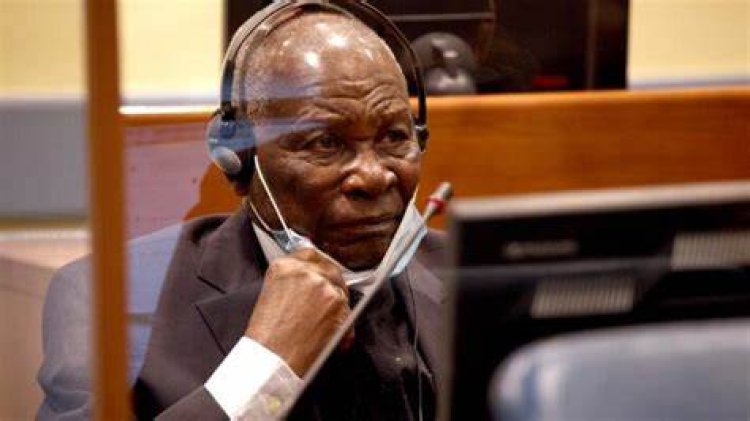The long awaited trial of Rwandan genocide suspect Kabuga finally to kick off in The Hague

The trial of a Rwandan genocide suspect Felicien Kabuga is kicking off to The Hague, Netherlands, in few hours; it is a very long awaited trial after a very long period on an arrest warrant of ICTR (International criminal tribunal for Rwanda).
Kabuga, nicknamed ‘genocide financier’ was born in 1935, at Muniga sector, Mukarange ‘commune’, Byumba ‘préfecture’, Rwanda. He was a well renowned businessperson and linked to the family of President Juvenal Habyarimana by marriage of their two sons and two daughters.
He has been the President of the Initiative Committee of Radio Télévision Libre des Mille Collines (RTLM) during the time of the crimes pleaded in the indictment and President of the Provisional Committee of the National Defense Fund (“National Defense Fund”) from about 25 April 1994 to July 1994.
On 16 May 2020, Kabuga was arrested at Asnière-sur-seine near Paris by French authorities as the result of a joint investigation with the Mechanism Office of the Prosecutor. On 30 September 2020, the French ‘Cour de cassation’ rejected Kabuga’s appeal against the lower court’s decision authorizing his transfer to the custody of the Mechanism.
Amendment of the warrant
On 21 October 2020, Judge Iain Bonomy, amended the warrant of arrest, and ordered that Kabuga be transferred to the Hague branch of the Mechanism based on a request from the Defense, which was supported by the Prosecutor and the Registrar, to allow for further medical assessments to determine whether Kabuga may be safely transferred to the Arusha branch of the Mechanism for trial.
He was transferred to the Mechanism’s custody at the Hague branch on 26 October 2020.
Kabuga’s initial appearance took place on 11 November 2020, during which a plea of not guilty was entered on his behalf, with respect to the charges in the indictment.
In the decision on Kabuga’s fitness to stand trial and to be transferred to and detained in Arusha, issued on 13 June 2022, the trial chamber found that the defense had not established that Kabuga is presently unfit for trial.
In the same decision, the Trial Chamber, nonetheless, noted that Kabuga suffers from cognitive impairment, is in a vulnerable and fragile state, and requires intensive medical care and monitoring.
The Trial Chamber further considered uniform medical expert evidence that transfer to Arusha presents risks of disruption to Kabuga’s familiar surroundings, which may materially and adversely impact the ability to swiftly commence and conclude his trial.
In view of Kabuga’s age and fragile health, as well as his fundamental right to fair and expeditious proceedings without undue delay, the Trial Chamber decided that Kabuga shall remain detained at the Hague branch of the Mechanism and that his trial shall commence there until otherwise decided.
Appeal after appeal
On 20 June 2022, Kabuga filed a motion for certification to appeal the Trial Chamber’s finding in the decision of 13 June 2022 that Kabuga was fit to stand trial. On 23 June 2022, the Trial Chamber certified for appeal the issue of Kabuga’s fitness to stand trial, and informed the parties that proceedings shall continue while the interlocutory appeal was pending.
On 12 August 2022, the Appeals Chamber dismissed the appeal in its entirely.
The Opening Statements are scheduled to be heard on 29 and 30 September 2022 and the Prosecution is expected to commence presenting evidence on 5 October 2022.
As a result of Kabuga’s health condition and based on medical advice, the Trial Chamber anticipates holding court sessions three days per week (Tuesday, Wednesday, and Thursday) for two hours per day (10.00 a.m. to 12.00 p.m. Hague time)
Kabuga is charged with genocide, direct and public incitement to commit genocide, conspiracy to commit genocide, and persecution on political grounds, extermination, and murder as crimes against humanity, committed in Rwanda in 1994.


 Francine Andrew
Francine Andrew 





























